In November 2022 we were excited to head to our project conference 'TAKING CARE & Re|Creating Kinship in the Ethnographic Museum
in Europe' in the
Netherlands. The three-day event and exchange was hosted by the Research Center
for Material Culture housed in the Museum Volkenkunde in Leiden. (conference programme here)
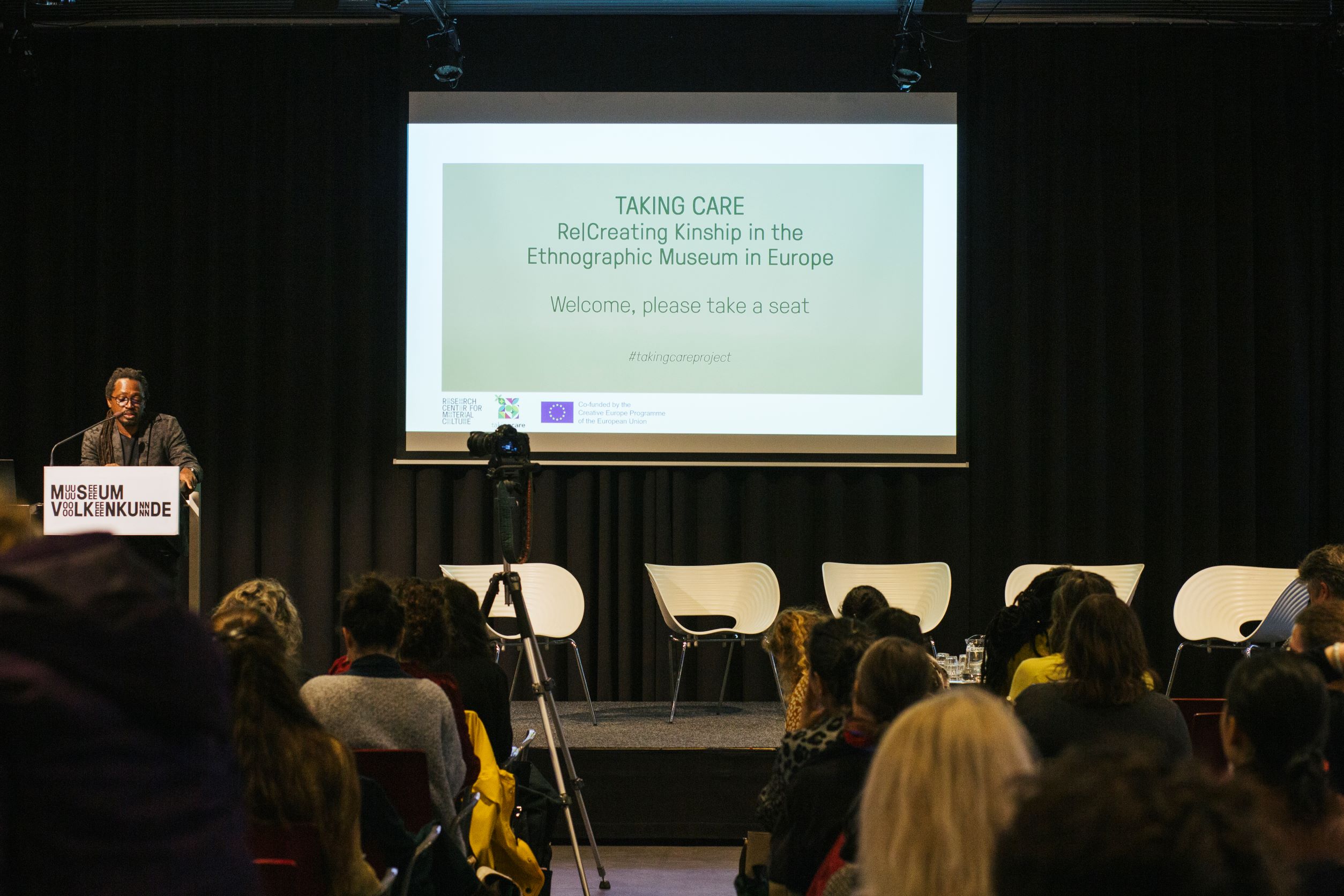
The head of the curatorial and organizational team for the event Wayne Modest, director of content at the Nationaal Museum van Wereldculturen, welcomed the participants. He introduced the event with an exploration of the genesis of the project and highlighted the concept of what care might look like and mean in the museum as a broad and inclusive concept. Wayne invited us to also consider how care can be violent and how it could be re-thought.
The head of the project Claudia Augusta from the Weltmuseum Wien opened the event with a call for ethnographic and world cultures museums to move from to Taking to Care.
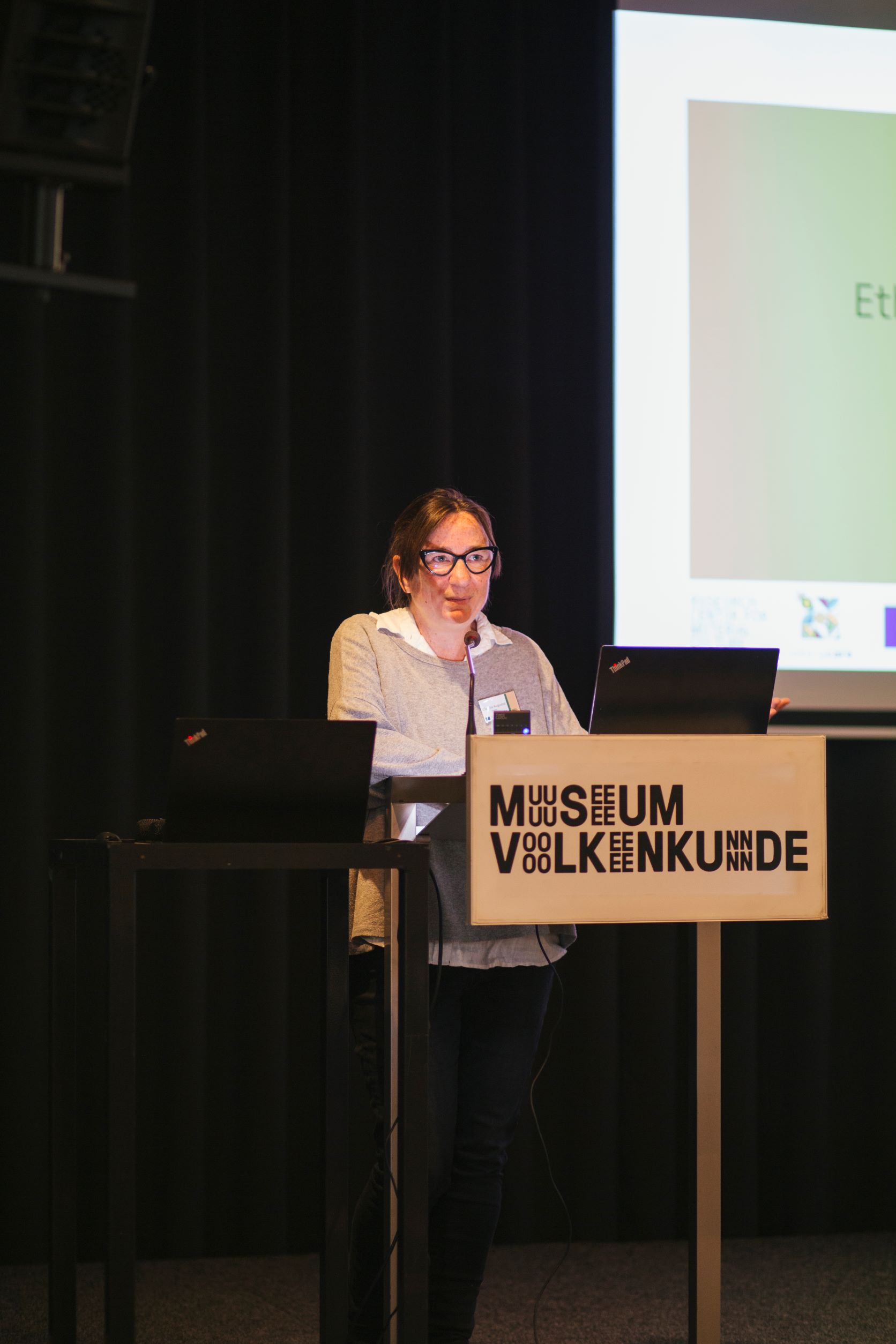
In the first session of the day three speakers gave impulse talks on’ Multispecies Kinship and Earth Archives`. The artist Zheng Bo started us of with an overview of several of his artistic projects, that aim to move away from a creationist claim of art making. In the ‘Wanwu Council: More-Than-Human Art Museum’ for example half of the artistic claim for the work goes to plants and animals, who scalp and form nature.
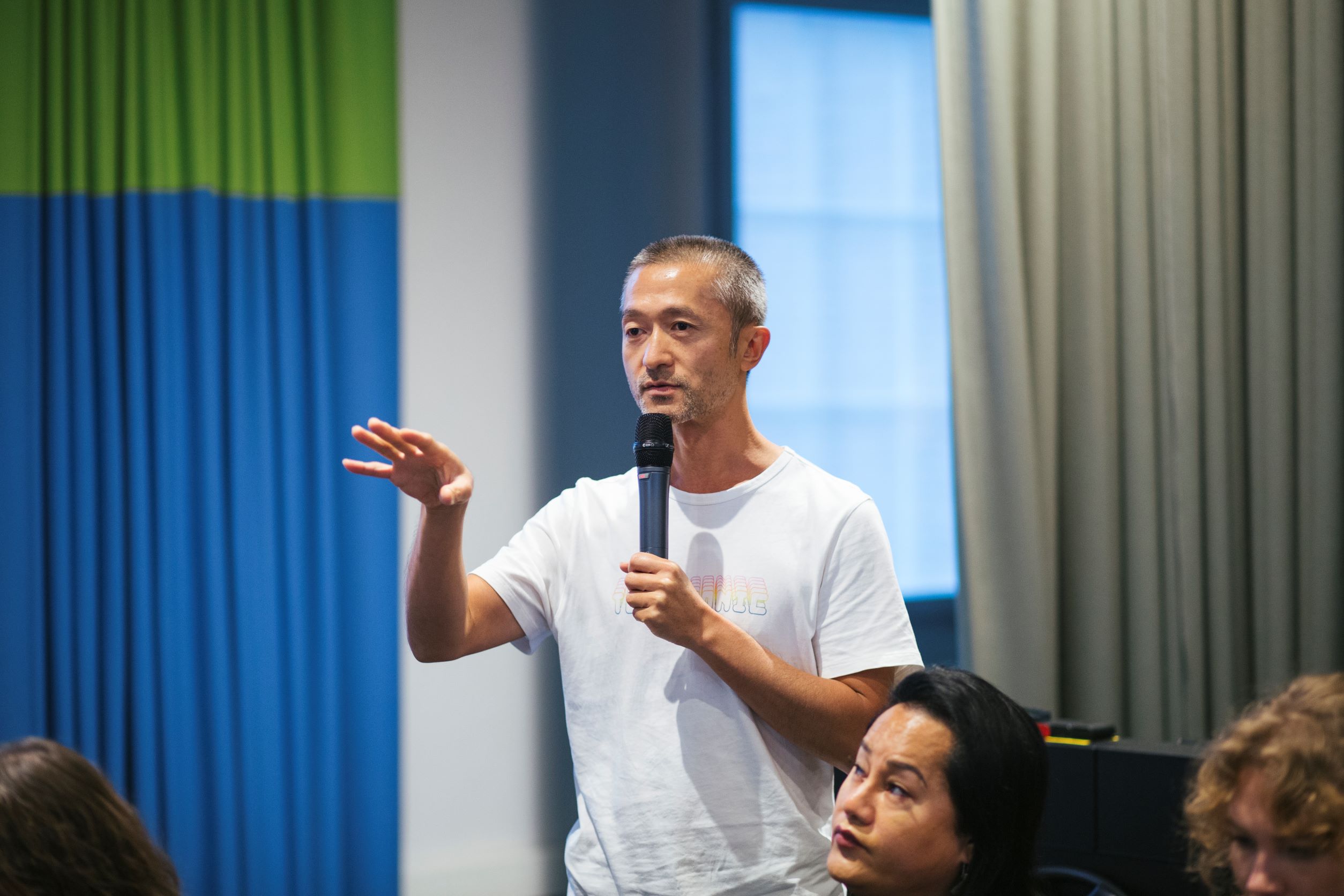
The second talk of the session was 'Ancestors, 'Shadow Families' and Myth: Revisiting Cape Town's First Slave-Owning Household' by Amie Lindiwe Hanan Soudien (curator, researcher and art writer). She shared two very personal woman's stories from the early slave-history in South Africa. By taking a deep dive into their very violent colonial experiences and the effects on them and then drew connections to slave history conversations today.
In the final talk of the session Mayanthi Fernando (associate professor of Anthropology) offered a provocation with her contribution on 'Toward a Negative Zoology: Not-Knowing for a Post-Anthropocene Future'. She reflected on the multispecies world we share and our inability as humans to understand that animals know and see things we do not. Mayanthi urged us to rethink our understanding of the human mastery.
Wayne Modest finalized the session with the following thought:
Museums have a drive of needing to know everything, of considering all visitors might want to know, so they scan and poke and find things they should not know or is not theirs to know. How might we rethink this approach taking into account the ethical questions?
After a short lunch break we resumed the conference with talks and
conversations around the theme of 'Care and/as Violence'. The first speaker the
global political ecologist Audra Mitchell, took us on a very unique and intense
tour through a museum, featuring a living? bat. Her talk' Holding on/letting
go: Fleeing the modern museum.' nudged us to reflect on all possible forms of
violence that could be found in caring for objects and people in a museum.
In the second talk of the session, that was moderated by Claudia Augustat, we heard from the artist Daniela Ortiz. She spoke of how contemporary museums are kidnapping art work's interpretations and narratives in her talk ´'Resistances to plunder. Anticolonial strategies against cultural domination'. At this point I urge everyone to research her decolonial coconut!
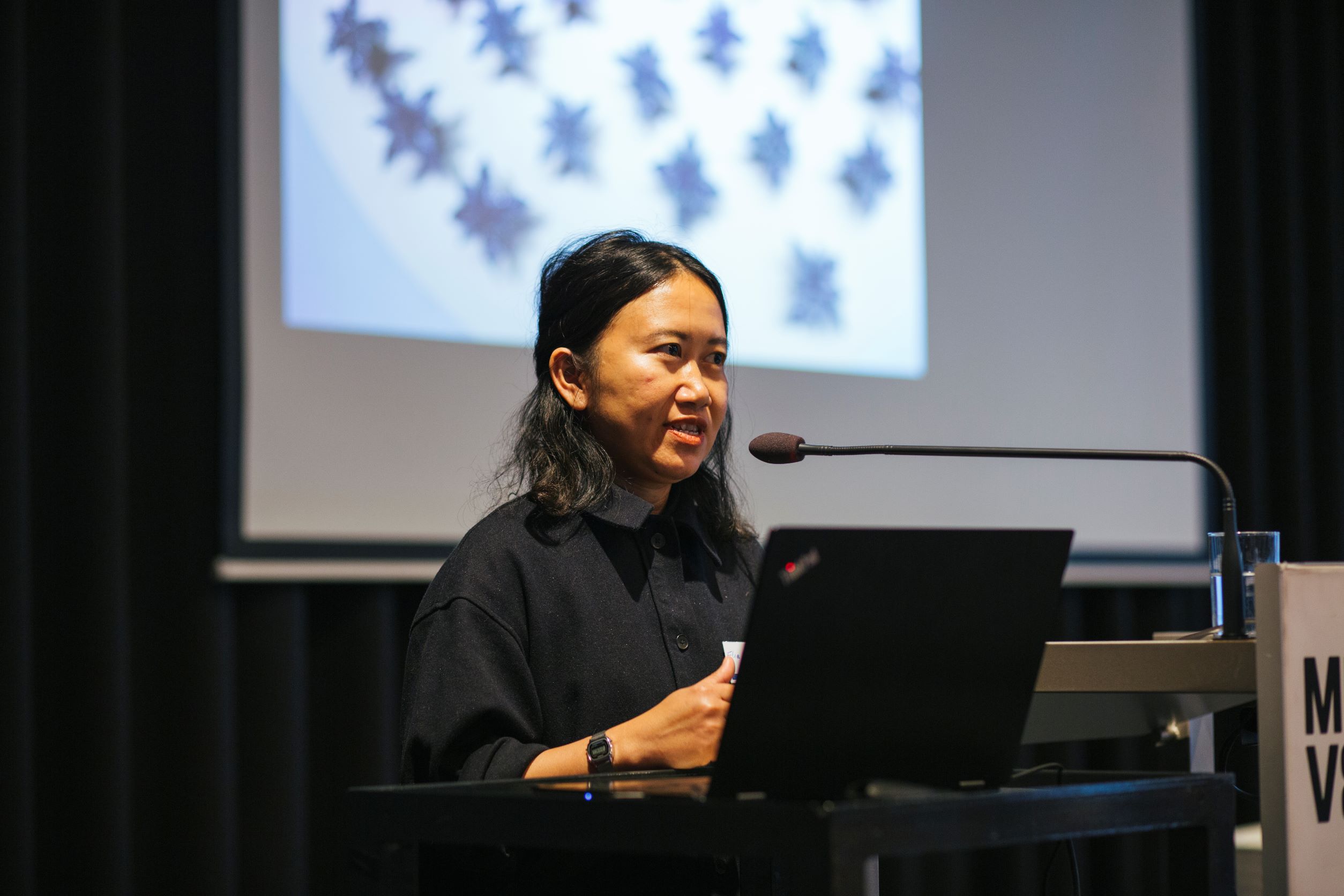
In the third contribution of the session, we heard from another artist. Elia Nurvista expanded on her work on the extractive historic and ongoing palm oil industry in Indonesia. The works around ' Plantation over Plantation' thinks through how destroyed nature can be repaired and how local economic prosperity can be returned through plantation today.
The last talk of
the session 'When does care become cruel?’ was by Juno Salazar Parreñas. The Assistant Professor of Science
and Technology Studies and Feminist, Gender and Sexuality Studies discussed how we could reconsider kinship in the
Ethnographic Museums through the story of Barbara Harrison in Sarawak, focusing on the Orang-Utan rehabilitation and her excavation work.
The panel discussion of the session went deeper into the critical aspects of care that need to be considered, in not only a physical but also a political sense. Furthermore, Audra Mitchell encouraged museums to incorporate critical disability study in our practice, as institutions are a lot about controlling and policing bodies. We concluded the conversation on this panel by pondering the question how we evoke the violence that has been done in museums, especially since there are present limitations.
In the final session of the day, we heard from the artist-in-residence Yuki Kihara about her work 'Going Native’. The curator for Oceania at the National Museum of World Cultures Fanny Wonu Veys and participants of the work Michiel Teijgeler, Mirte Hazes and Harry Lodder joined the panel titled ‘Going Native- Dutch Constructions of the Pacific'.
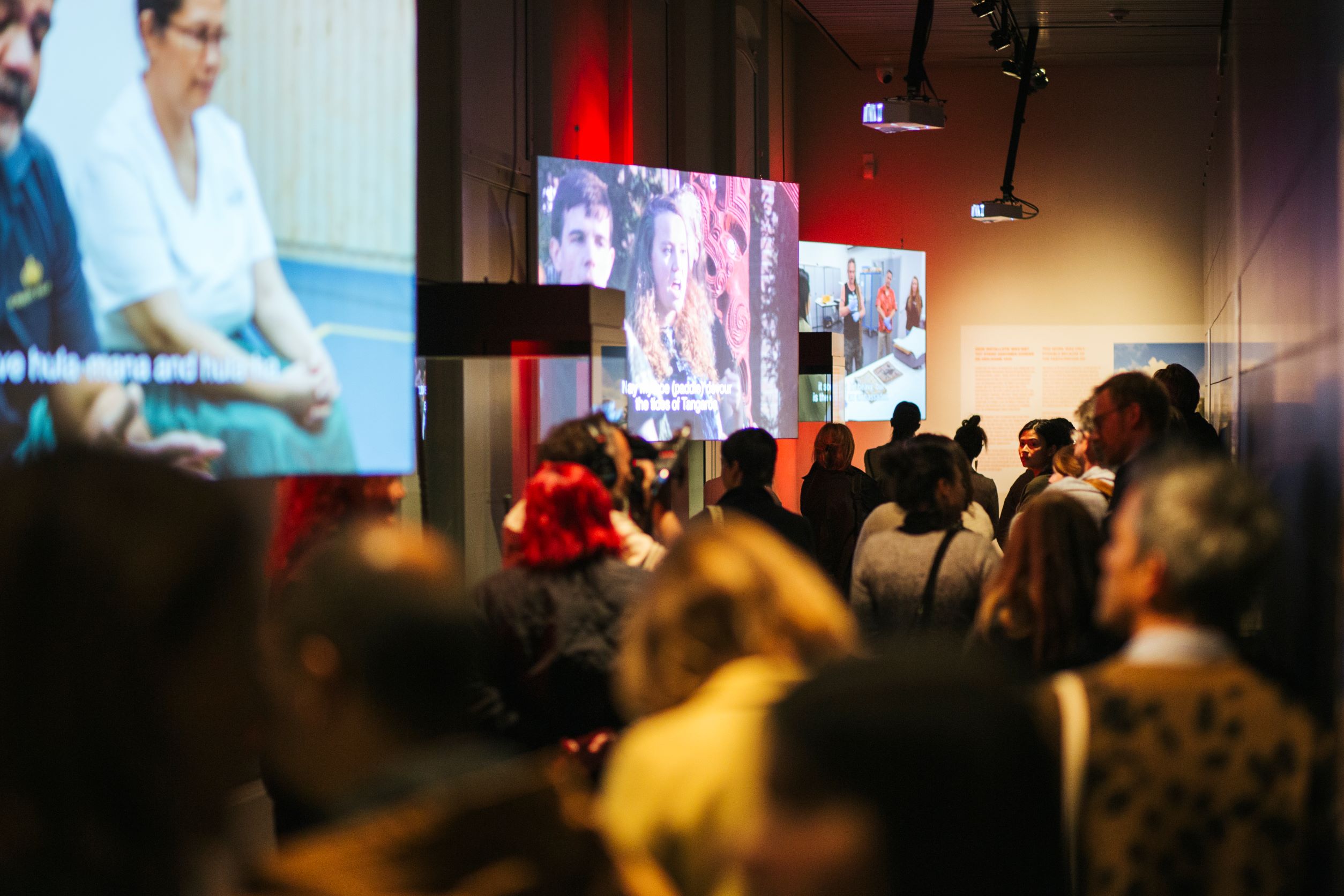
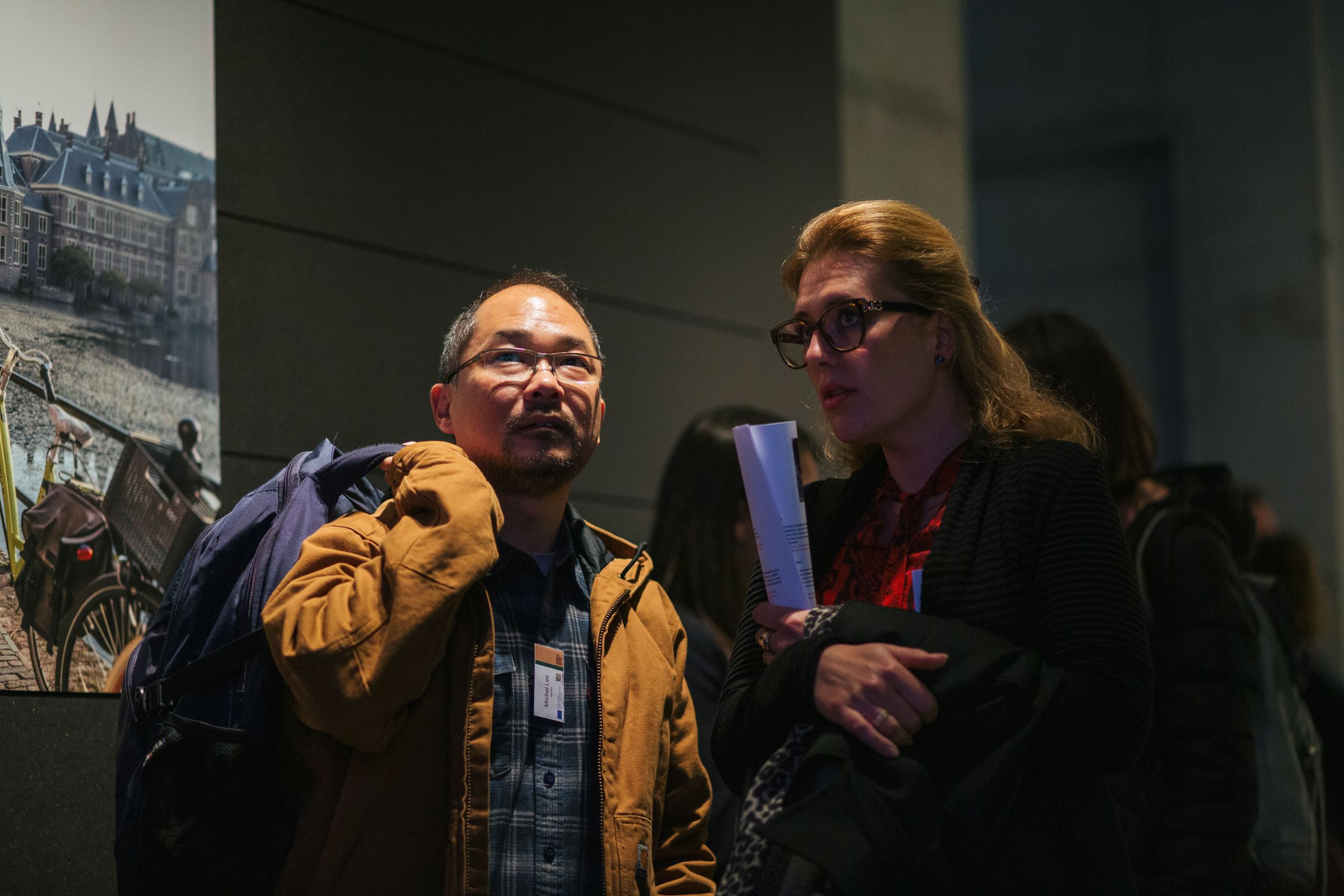
In the very vivid discussion of the session, we explored what the line
between cultural appropriation and respectful cultural interest and sharing is
or should be. We also talked about the the societal silences in the Netherlands around the Dutch
colonial history and its legacy in Papua New Guinea. The artwork that is
currently on display at the Museum Volkenkunde in Leiden is a work about 'reclaiming the narrative of the Pacific'. Before visiting
the installation ourselves Erna Lilje, curator of Indigenous knowledge and material culture left us
with a thought on how to address those silences. Instead of policing the edges,
we should rather prompt people to reflect and ask themselves questions.
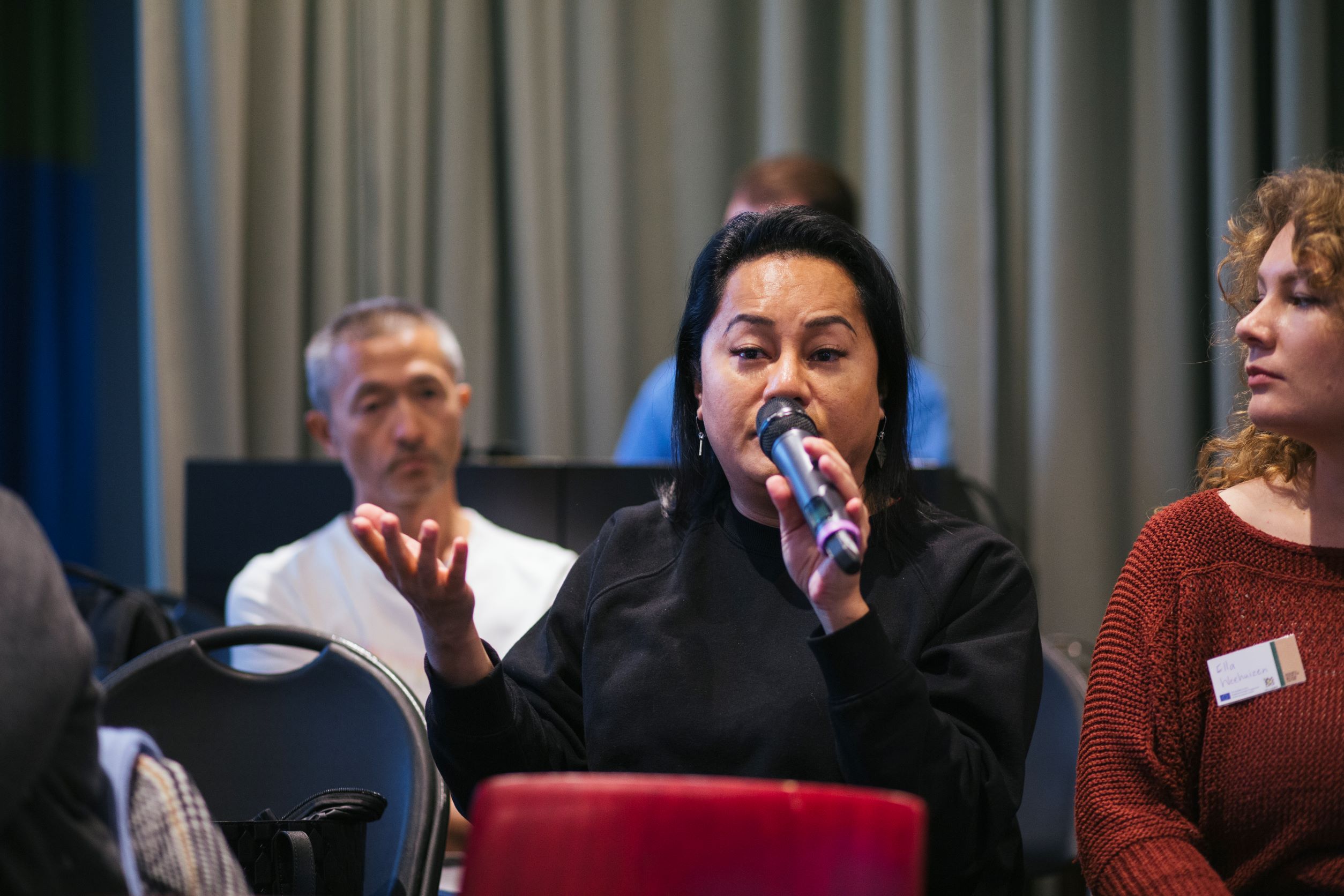
Day two of the conference started with the fourth session on ‘Care at the Borderline'. In the first talk Associate Professor of Anthropology Miriam Ticktin thought through the theme of ‘Radical Care at the Border: Dismantling and Rebuilding Political Worlds’. She invited us to conceptualize a new form of museum that allows collective imaging otherwise named Biomia, which would leave behind and dismantle borders and form larger multispecies relationships.
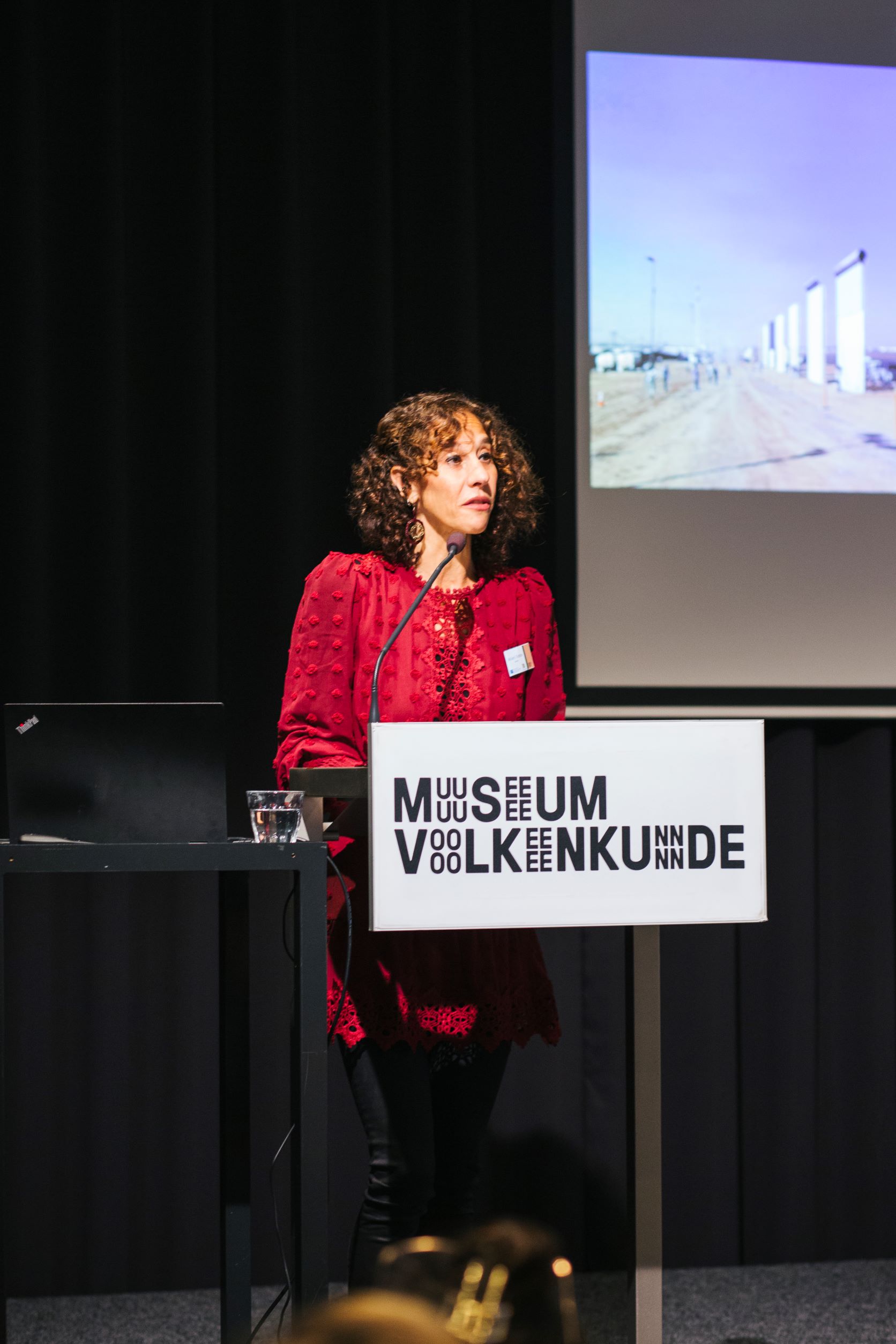
The second provocation of the day came from Ian Baucom currently vice president and provost of the University of Virginia, who explored "The Future Claimant’s Representative: 'What is the museum for?'" The talk expanded on themes such as how we are colonizing our future in the climate crisis, as we are creating a global arid zone by unequal wealth and consumption. Moreover he spoke of the of current tactics of policing and excluding people along the colonial lines from green zones and places like the Schengen Area and the green suburbian gardens of the US.
In the third contribution of the session we heard from the artist Aram Lee about her work on transforming colonial objects into ecological participants, through this they can reveal new stories and new ways to exist. She also shared insights into the process of giving new meaning to an object, one that crosses time and space outside of the material power of the museum. Finally the artist questioned the level of care museums can give to objects.
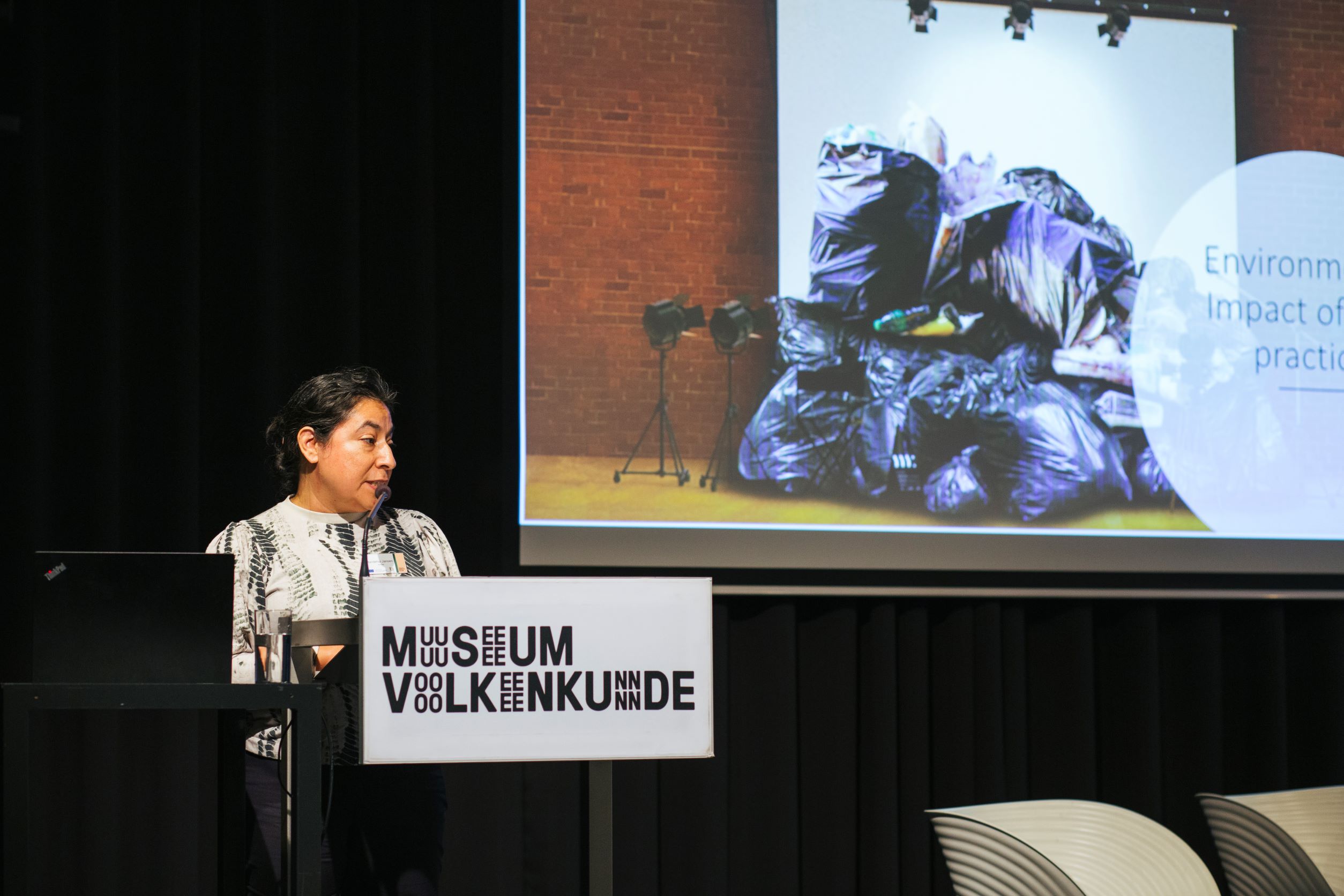
The final talk of the session was by film maker Ithanehui Jansen, who reflected on "Filmmaking, Eco-narratives and Sustainable Practices". She expanded on the ecological footprint of the different parts of the filmmaking process and talked of ecological filmmaking. This should include different approaches to travel and where to film and with how many people. As well as, sustainable solutions on where to source props or how to reuse and recycle them, as well as using natural lighting. The filmmaker finally told us of her own experiences in ecological filming, when making her film 'Kii Nche Ndutsa (Time and the Seashell)'.
The discussions of this session was about potential practical solutions in museums to tear down our boarders by using natural light for example. Furthermore it explored how we deal with dying objects through and in the museum? Finally, we talked about how we can find a language in our conversations about the future of museums and the path towards that, which is accessible to as many partners as possible.
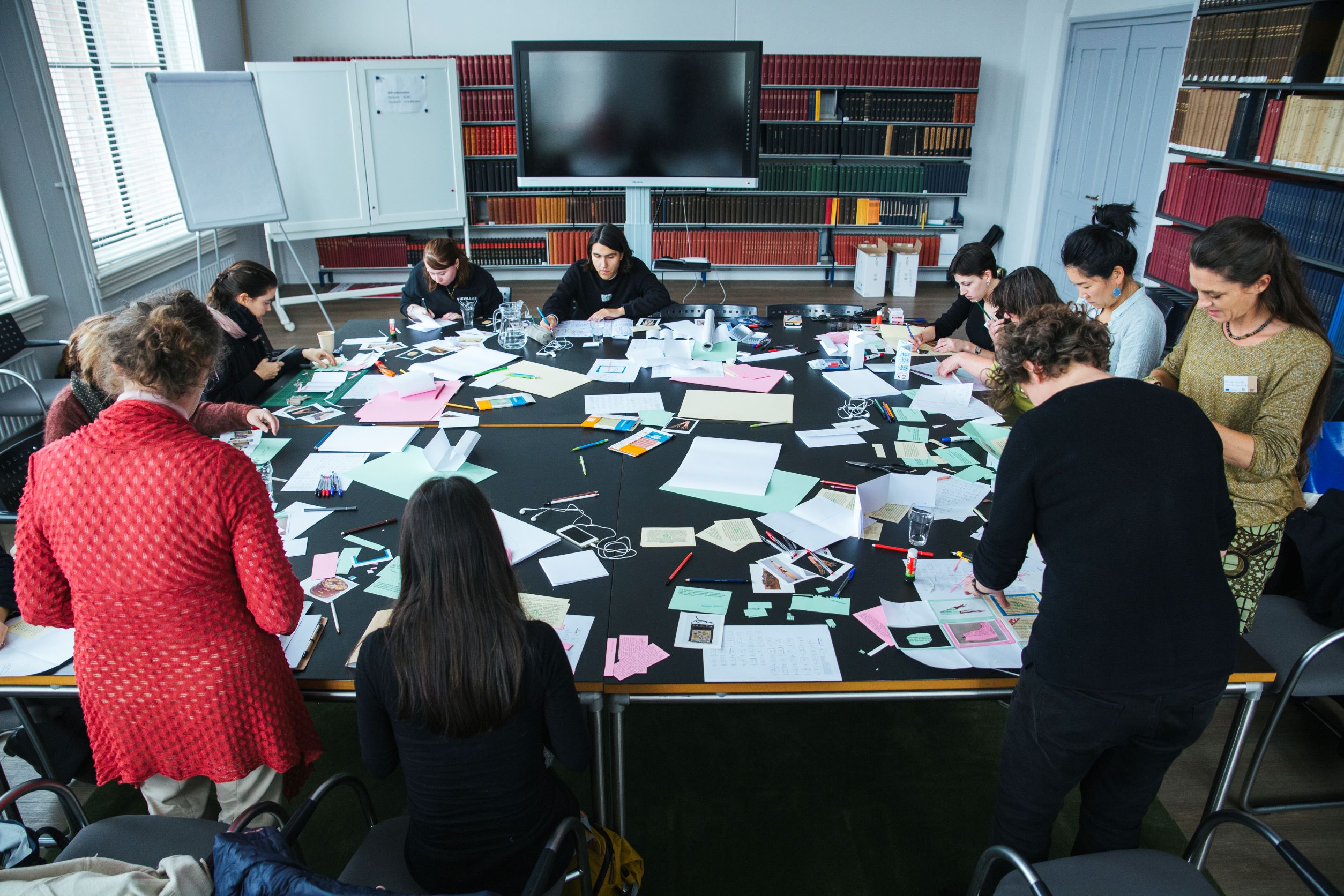
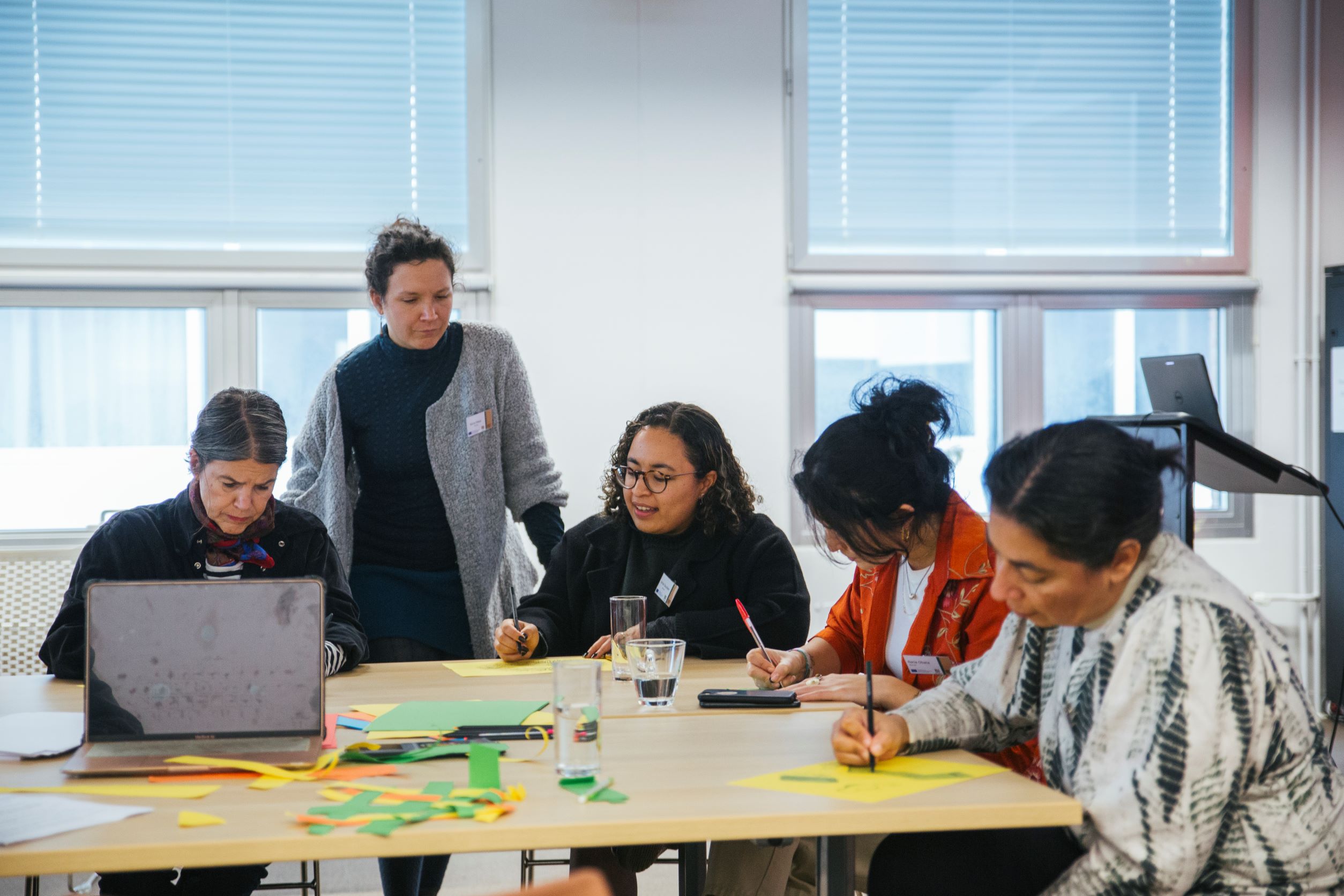
The afternoon of day two held four potential breakout sessions to choose
from in store for us. The author of this article joined Audra Mitchell's "Critical care package (a
creative workshop)" workshop. Here we critically and personally spoke
about and creatively explored the idea of creating a care package for an
objects journey home. Starting with the travel preparations and the surroundings they travel in,
continuing with potential caretakers also taking into consideration what
happens upon its release. We had a very inspirational and thought-provoking time
and thank all participants for this beautiful session.
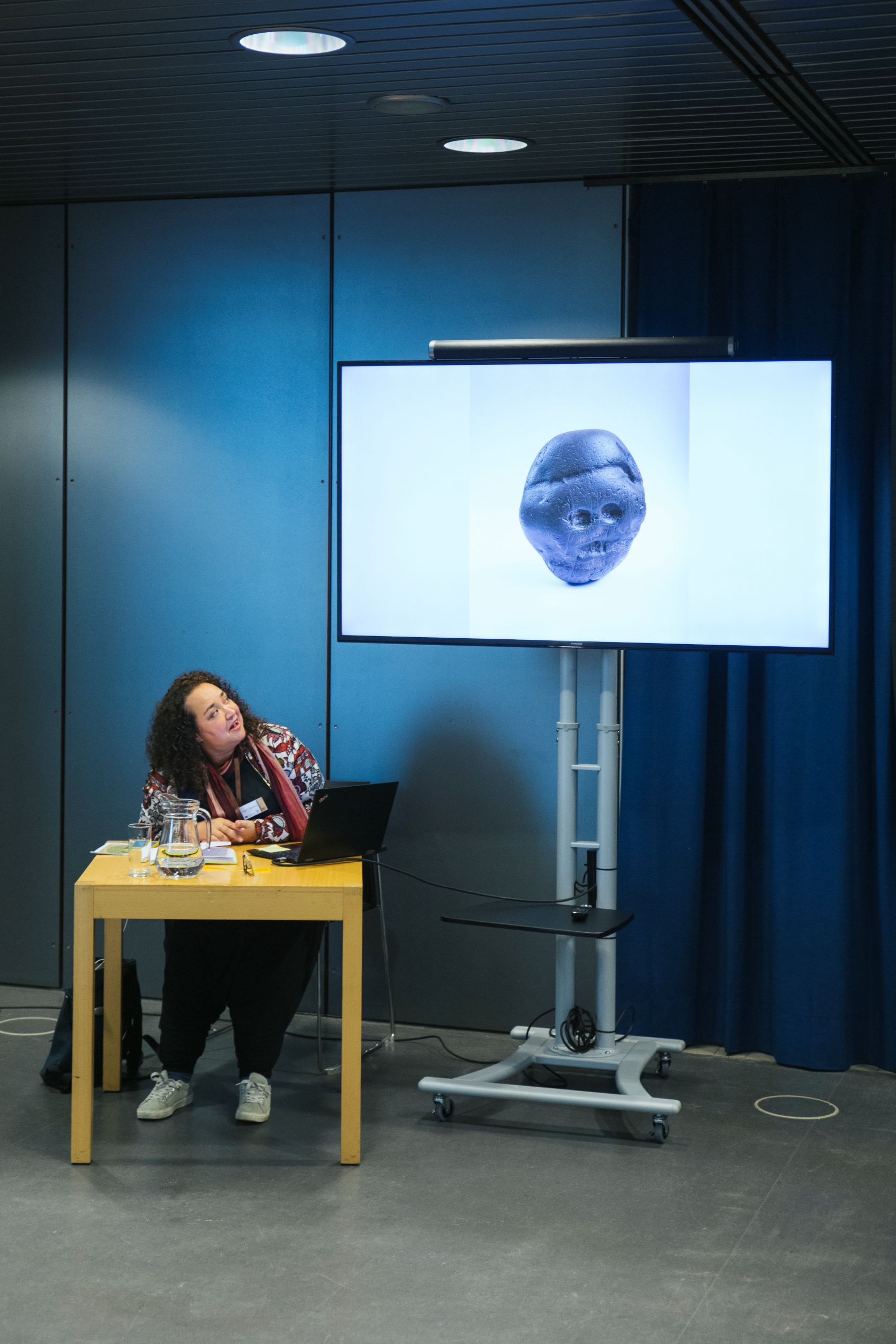
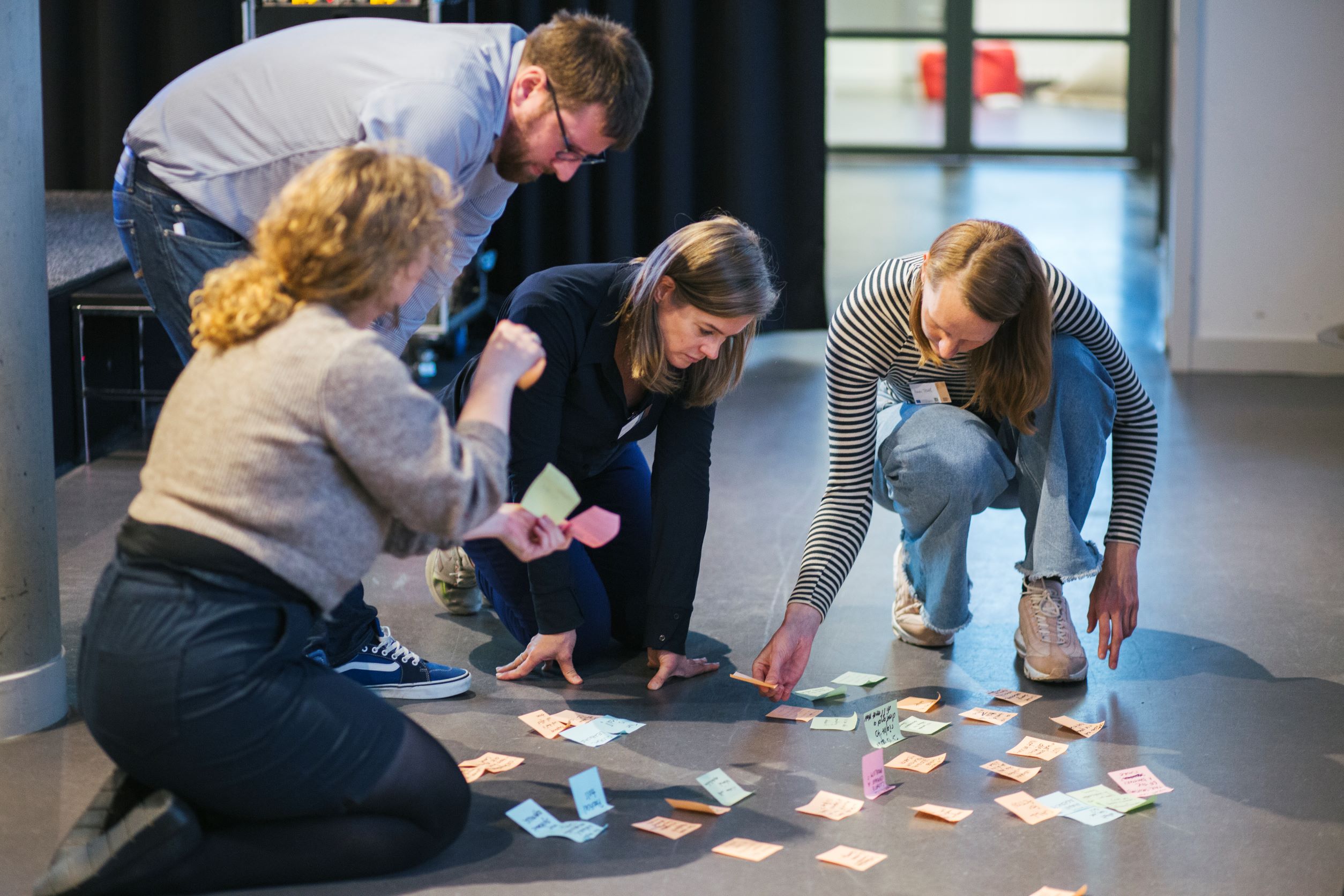
'We are never a fly on the wall as photographer and as an anthropologist'
The day ended with this year's Gerbrands Lecture, which was held by the anthropologist Jason De León and is an annual event organized in cooperation with the University of Leiden.
The talk ‘Soldiers and Kings: Inside the World of Human Smuggling" focused on his work on undocumented migration and smuggling through the means of photography as an ethnographic practice, not just as an illustration. It can create new layers of understanding and glimpses of unseen worlds that words cannot give us. De León asked the question how one could represent a person and his story through one image with all their complexity and all their experiences? He also talked about his choice of camera and the aesthetic thoughts behind this, in so far as they relate to the stories being told. On this topic he expanded on about racialized colour balance in photographic film. The lecturer asked us and himself questions such as: How does one photograph a concept such as migrate time? What are the moments you can't/shouldn't photograph and highlights the importance of the things that you do not photograph. Further he explores agency and subjectivity, as a photographing anthropologist, who is gazing at whom? The speaker finally leaves us with the photos he and we can't run away from. Jason De León photos were on display in the exhibition '(Un)Documented Migration ft. Hostile Terrain '94' at Amare – Den Haag in November 2022.
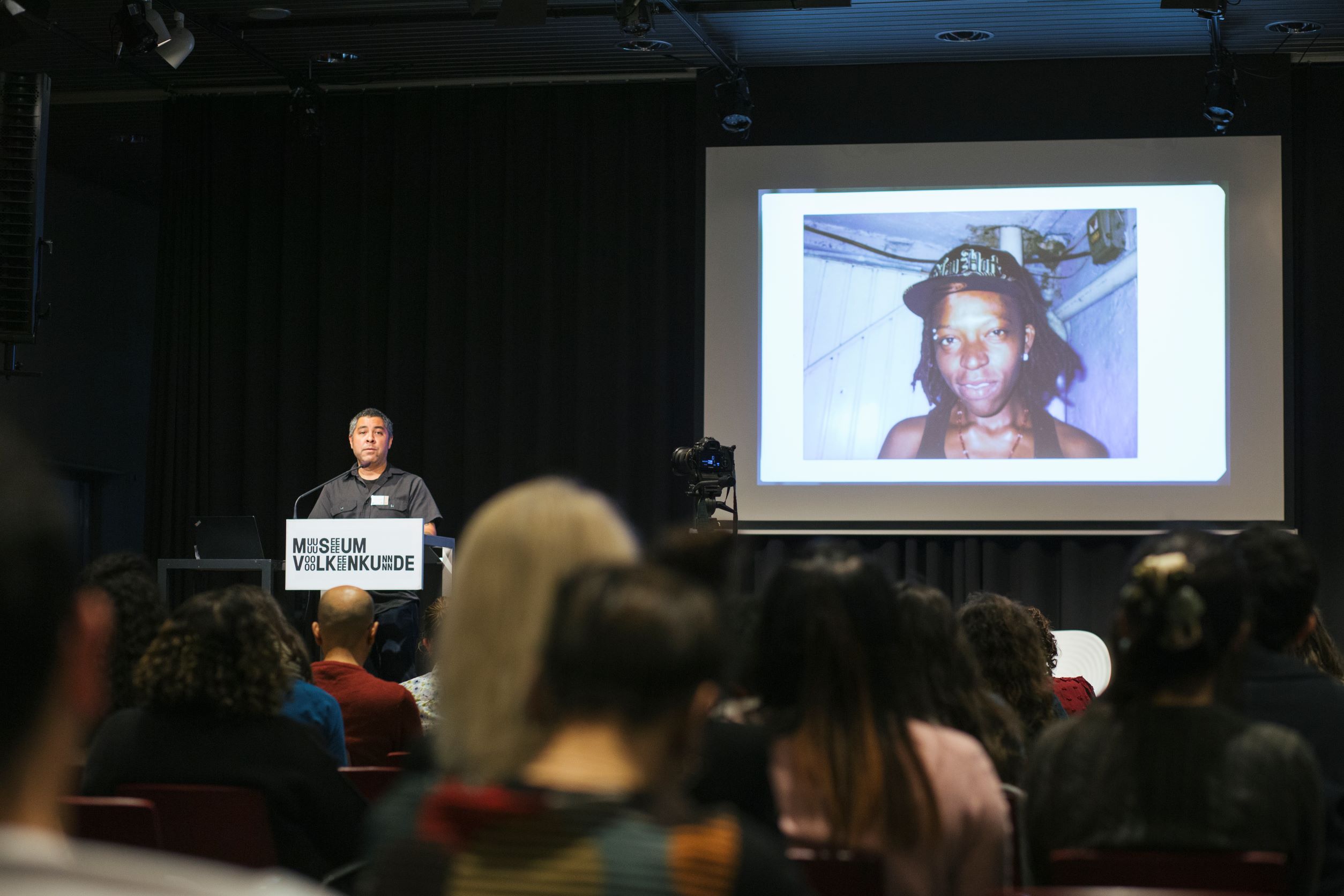
The discussion on this talk were around notions of care in the
smuggling context, violence in migration, ethics, political and financial
aspects and violence perpetuation, post traumatic stress and nuanced work. Furthermore we spoke about how not to shy away and hide from but
instead to tell traumatic stories but at the same time acknowledging the toll
this takes and how to work through that pain.
On the last day of the conference, the TAKING CARE partners from AfricaMuseum in Tervuren, the Pitt Rivers in Oxford, the Varldskulturmuseet in Sweden and the Slovene Ethnographic Museum shared their objects lessons, which will be part of the project’s scholarly publication (stay tuned!)
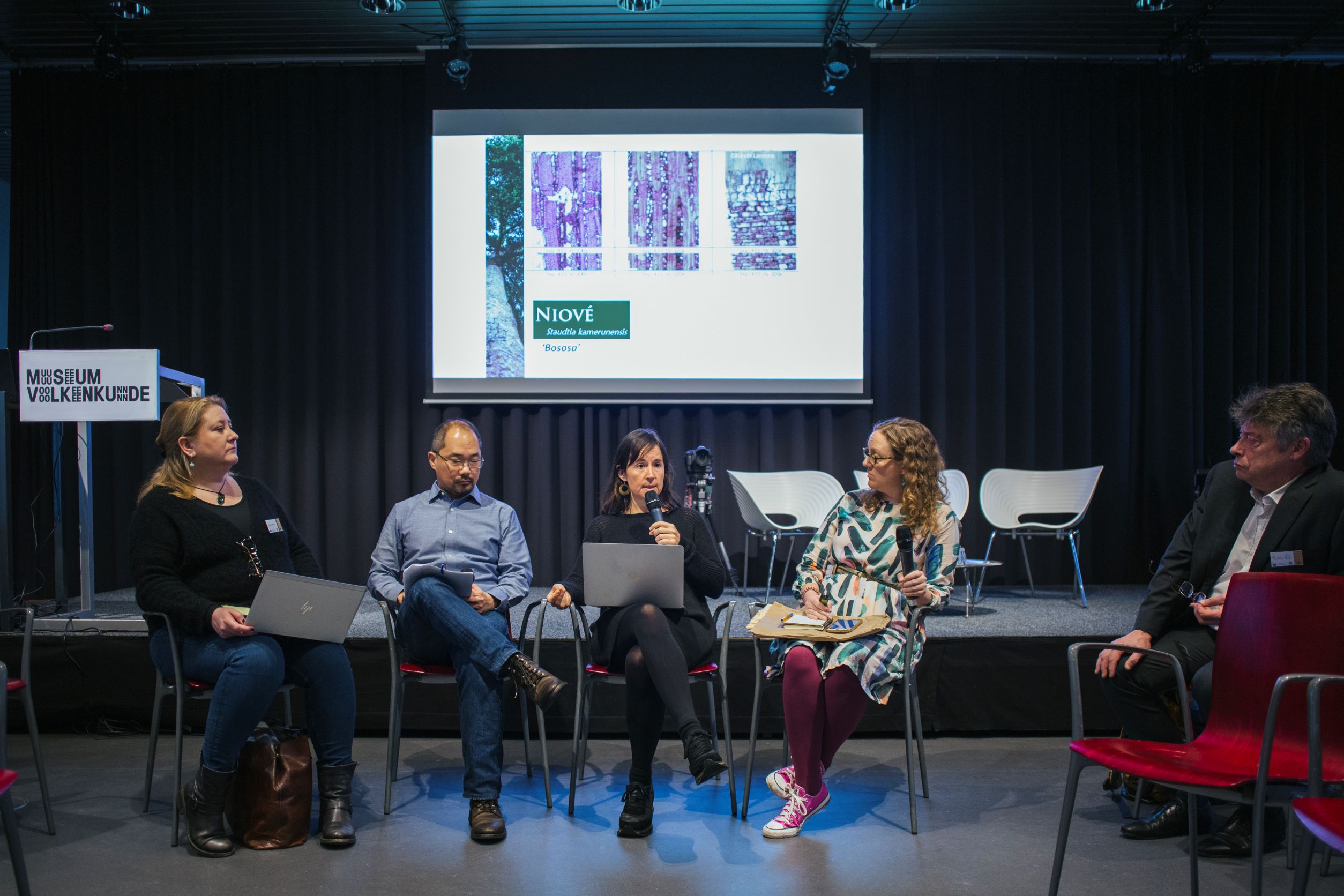
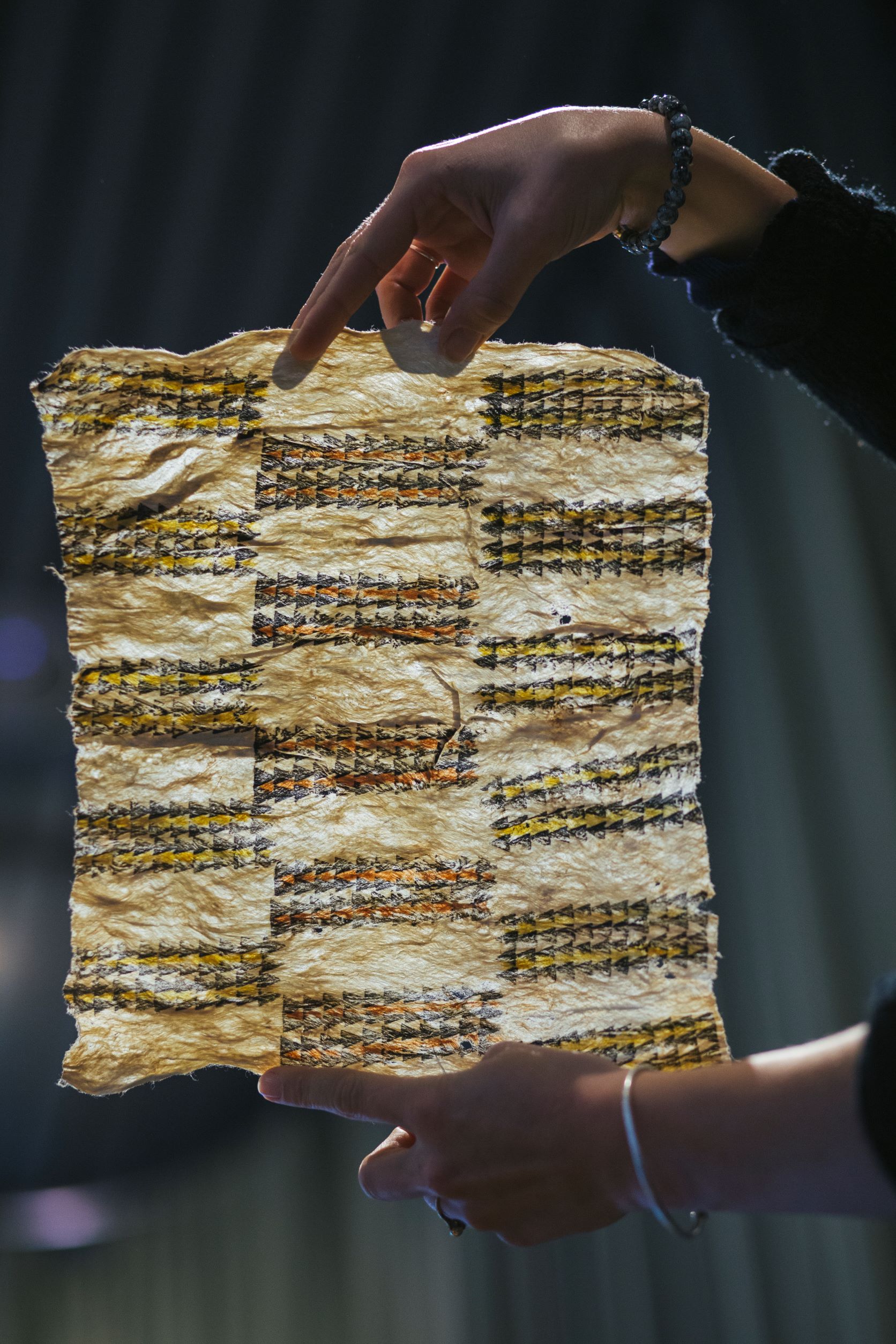
They are against the grain views, lessons and learnings from objects in the museum’s collections. Dr. Ashley Coutu from Pitt Rivers moderated the session. The session discussion focused whether we want to consider de-growth of collections and re-display objects.
The final session of the conference opened up the floor for the participants to
conclude unfinished conversation around multispecies care and the World
Cultures Museum. Participants asked about hearing and talking more about structural
collaboration so they can be made more tangible. Moreover, experiences and challenges in building sustainable relationships were being
shared from the Weltmuseum Wien and from
Sweden.
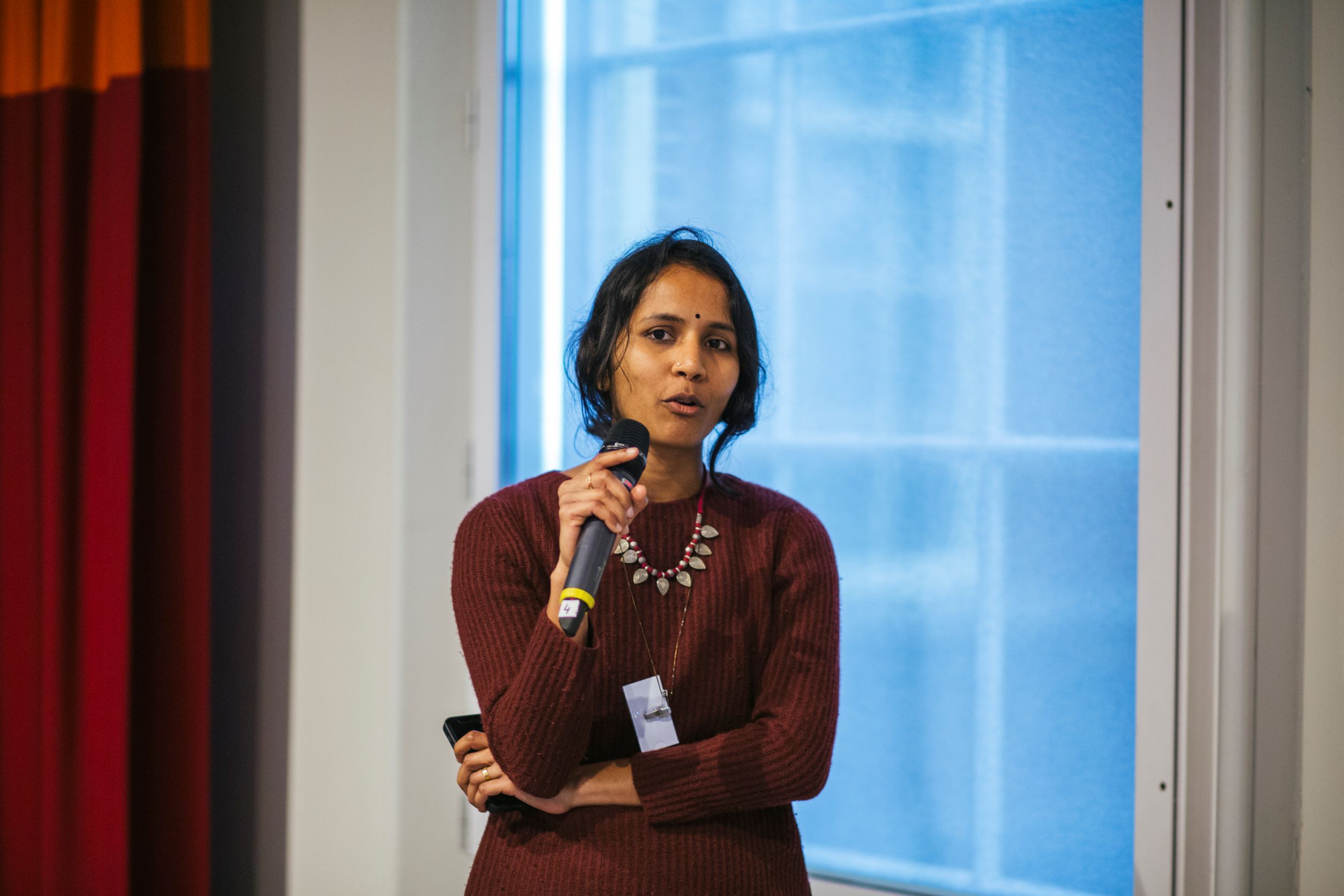
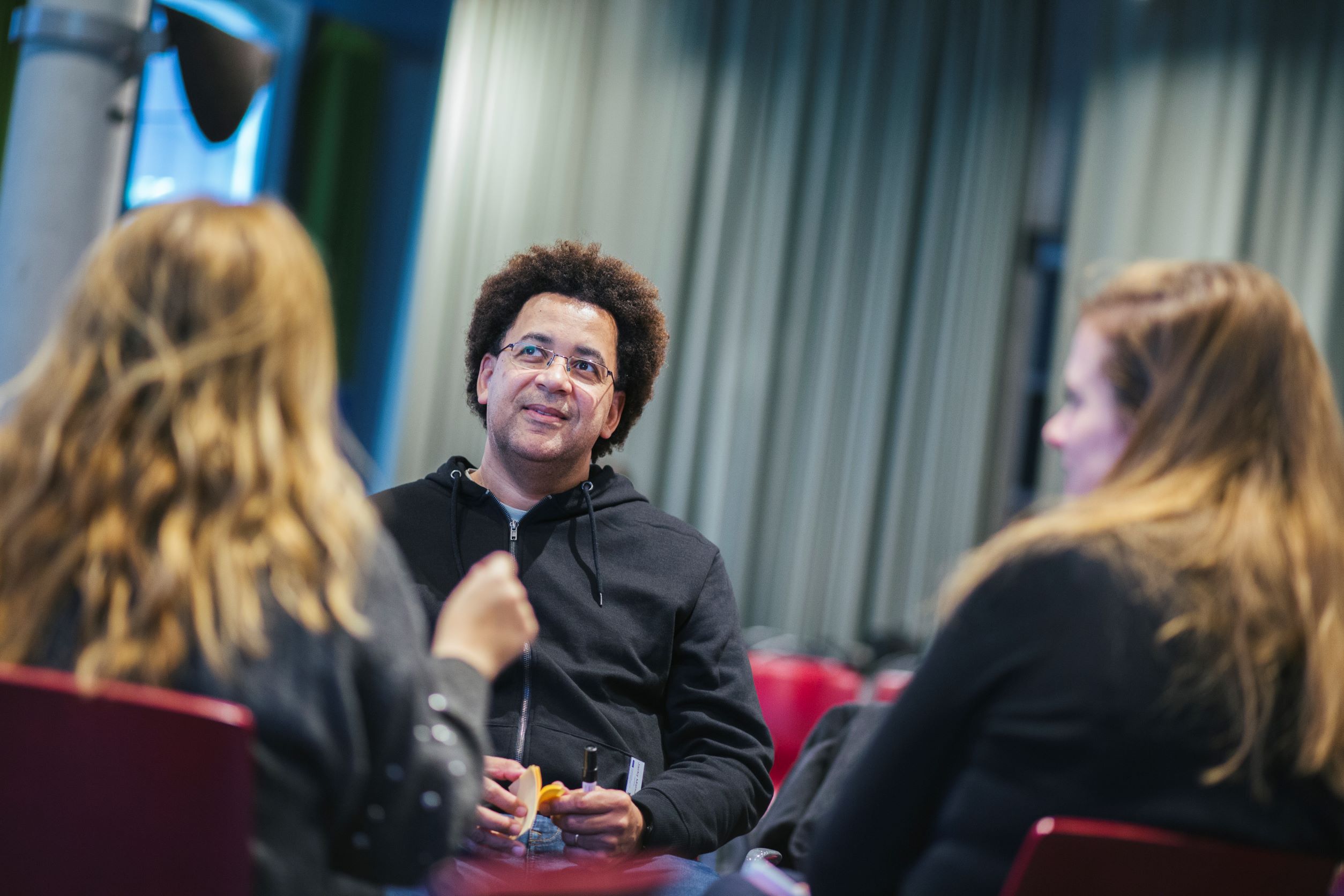
Museums as records and archives were also being discussed, as well as the question whether we need to tell the objects story? Perhaps memory is enough, especially when we are witnessing the destruction of cultural heritage today. We were also discussing, whether we are talking and in cooperating enough about ongoing colonization in the Global South, which is destroying communities their heritage and homes today. At the same time considering power imbalances.
This lead to the question how we as TAKING CARE partners should show our commitments in relation to partnerships with artists and communities, in order to instil a change of our behaviours and practices to be shared at the end of the project. We agreed that we as museums need to rethink before we can move forward and heal.
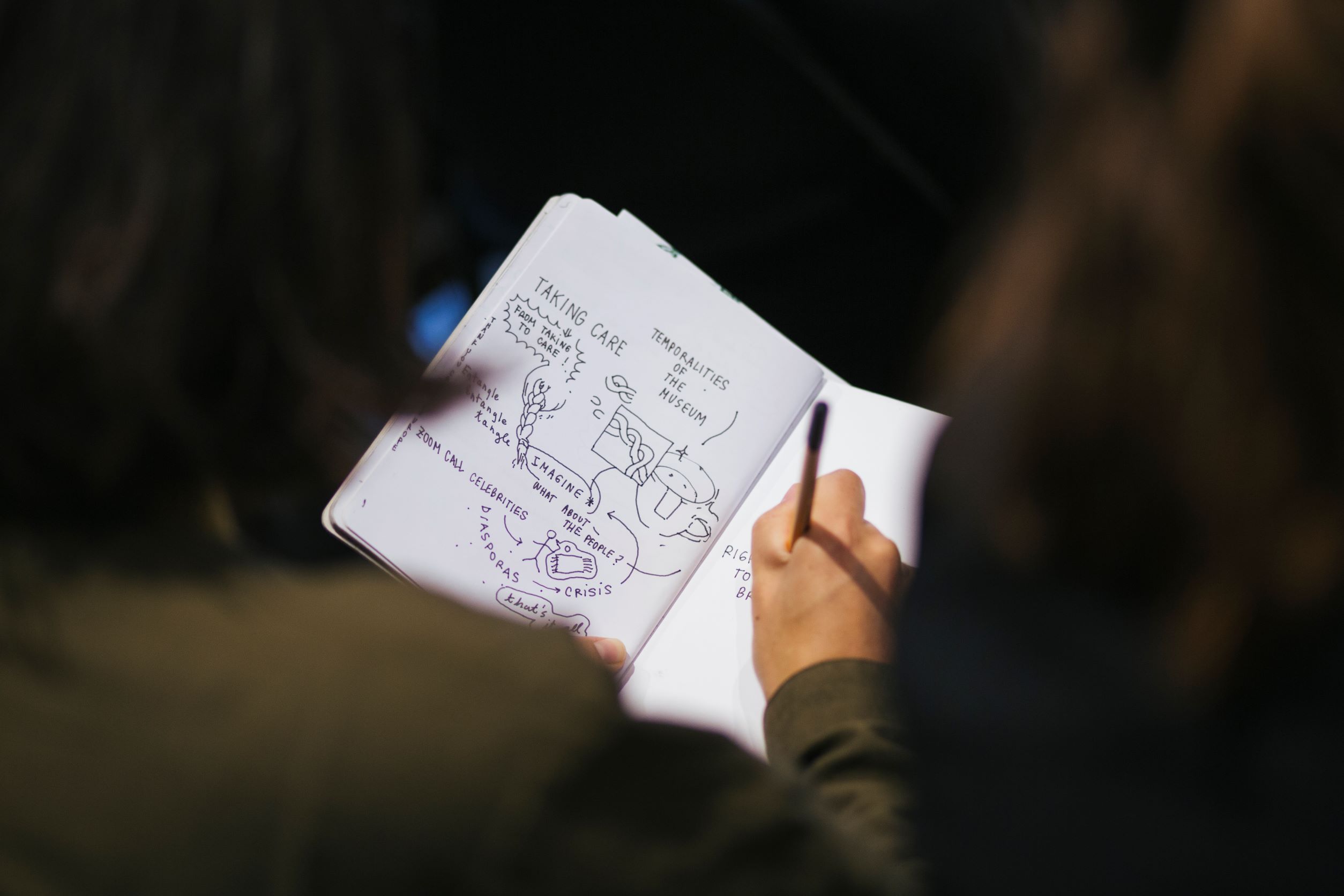
The event was partially recorded and will be shared on this platform soon. We thank all participants, speakers and organizers for this wonderful thought-provoking exchange.